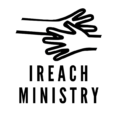Haiti School Supply Project
The country of Haiti provides no funding for local education leaving parents to find and fund education for their children. The church at Bel Air has stepped in to help their community educate children for primary school. It costs about $250.00 US a year for a child to attend this school in Haiti, our partnership with the community of Bel Air in South East Haiti is touching the lives of over 30 families and their children.
The number one way to impact Haiti is through its people. The World Bank identifies improvement to both health and education is the best way to help improve the lives of Haitian’s and Haiti’s economic situation. Through education, like reading, we hope to enable the next generation of Haitians to read the Bible.
did you know
Did you know that all of Haiti’s schooling is funded and conducted through local communities, churches, and Non-Governmental Organizations?
Unfortunately, the Haitian government provides no funding to support education at the local level. There is no public funding education or system. This is where iReach Ministry feels the calling to help support the church’s school by providing school materials for each child, in addition we support the teachers, staff, and meals for student.
Today at the Bel Air School, like most private schools, the student has no hard copy materials. The only written word or math a student sees is what the teacher writes on the chalk board. Literacy is nearly non-existent. The student practices math verbally or on the chalk board when called up. We can help them. Especially to be literate and able to read a Bible in Creole.
The Bel Air Church meets the local need for education serving approximately 60 children from preschool through 5th grade from September through June each year. It costs approximately $42.00 US a year to support each child with the required Haitian Curriculum materials, paper, pencils, and notebooks per year.
Quick Facts
According to the Human Capital Index, a child born today in Haiti will grow up to be only 45% as productive as they could be if he/she had enjoyed full education and healthcare
